Marketing Strategy: 4 Steps for Success
TL;DR
Your sales landing page (aka sales page) can be found in the Playbook creator app under your profile — share this link anywhere and everywhere!
Make it clear and concise what value users will get by subscribing to your app
Leverage user-generated content to let your fans and followers help spread the word about your app
Set a regular posting schedule and stick with it — the most successful creators develop a routine for post frequency and style
Whether your app is a full-time gig or a side hustle, you created this subscription business because you wanted an income stream. But if you don’t market your app, guess what? You don’t make any money!
Marketing your app doesn't have to be intimidating. To make things as simple as possible, we’re breaking down the four essentials for you here. Follow this step-by-step guide for success.
1. Share Your Sales Page
Your sales landing page (aka sales page) is your digital storefront — it needs to be easy to find so people can subscribe to your app. Your sales page should never be more than one or two clicks away.
Note: To find and share your sales page in the Playbook creator app, click the profile icon in the lower right corner.
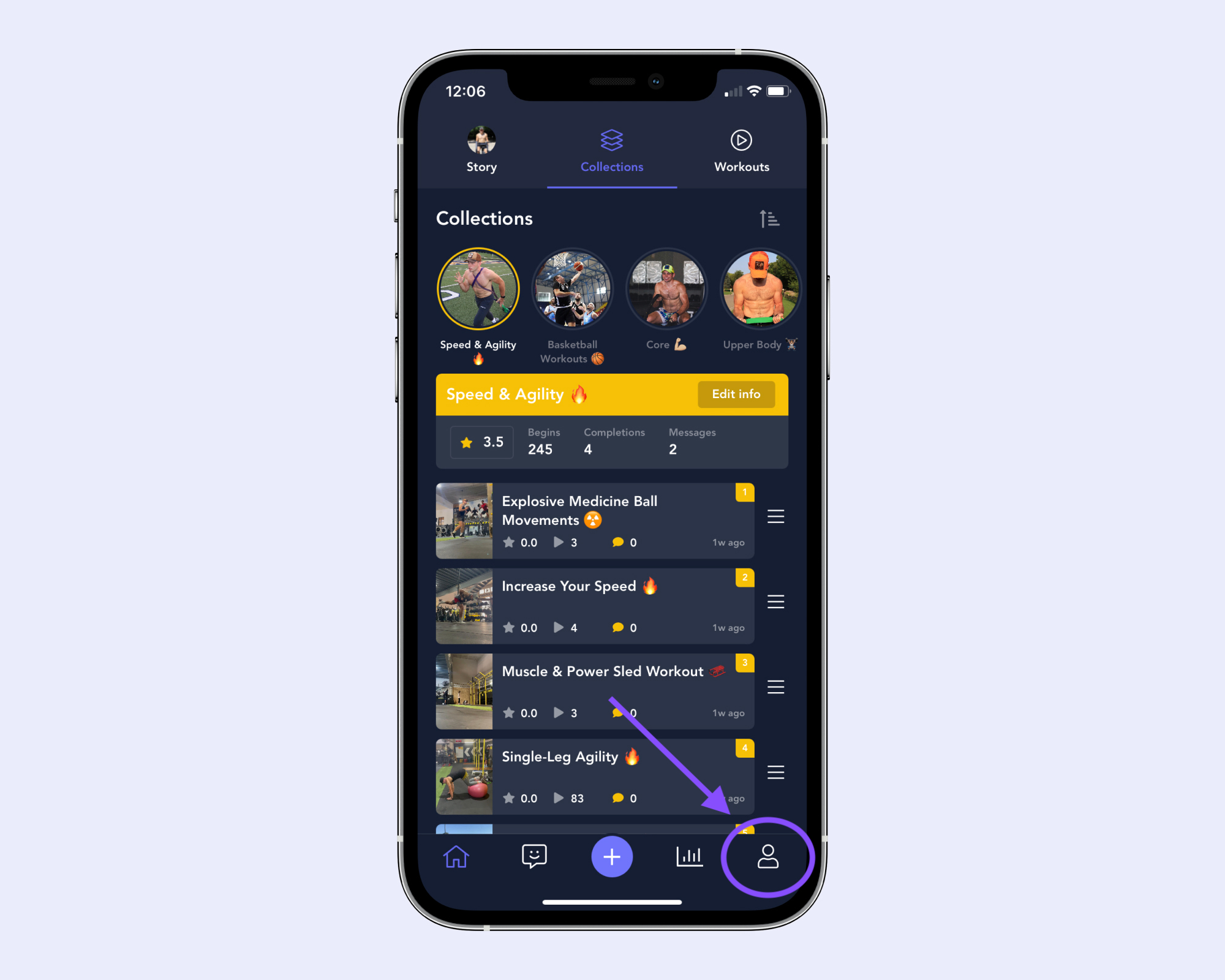
On the next page, click “Promote” at the top. Here, you can copy and share your sales landing page link, your free trial, or a gift subscription.
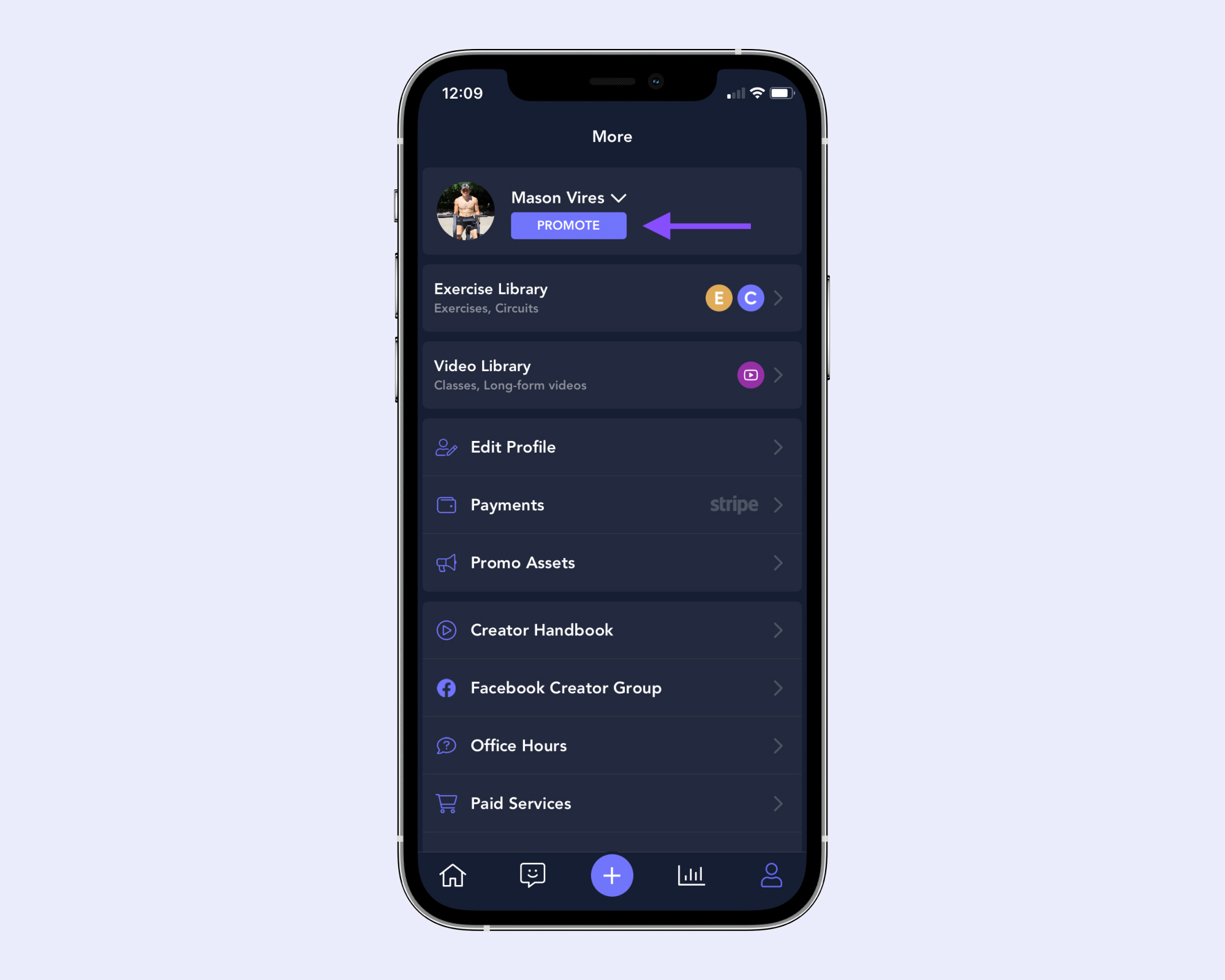
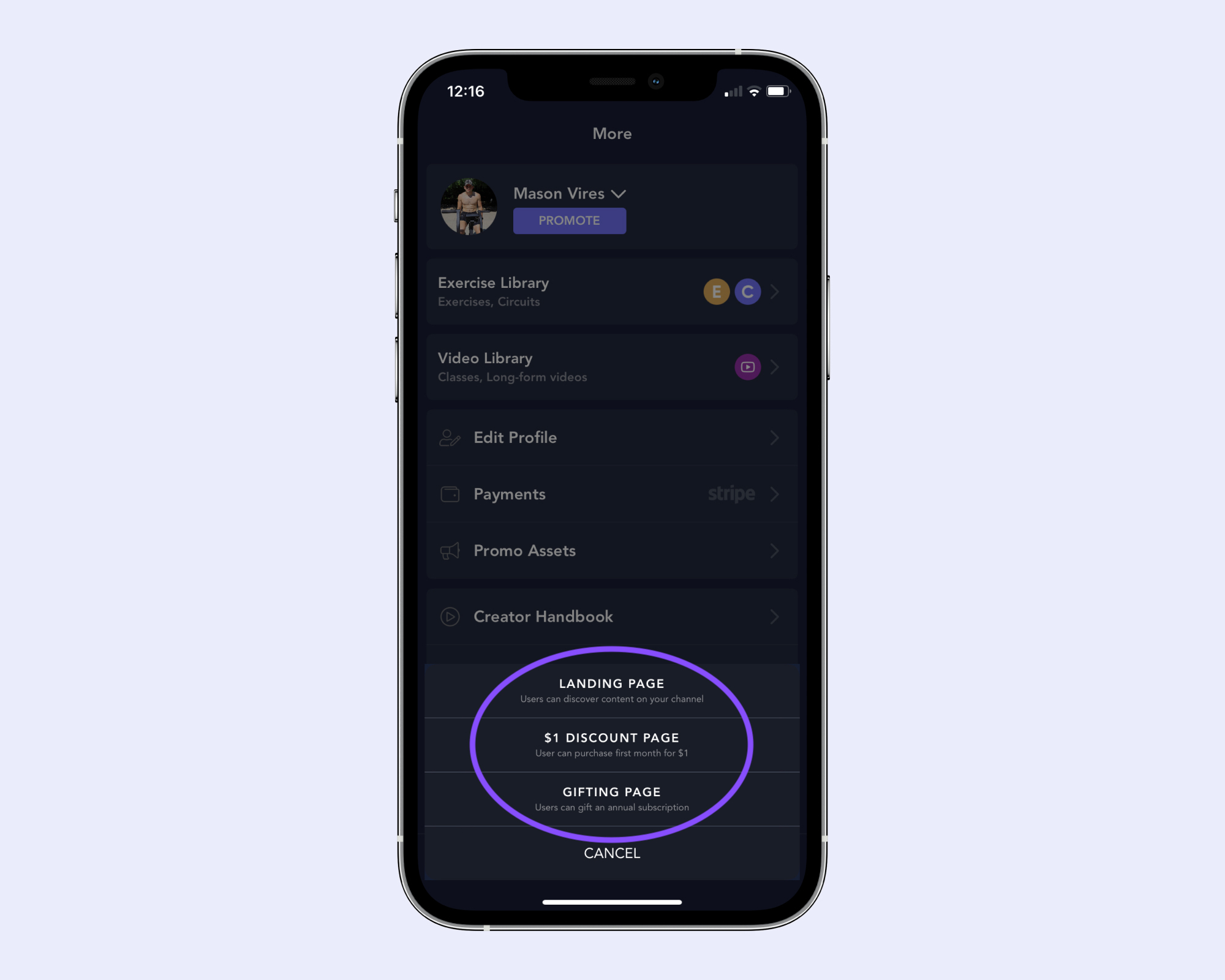
Add your sales page everywhere, including:
Instagram, Facebook, Twitter, YouTube, and TikTok bios
Top position in LinkTree
Website
Newsletter
- All social posts
Pin posts on Facebook and Twitter
Create an Instagram Story highlight (more on this below!)
Post a promo video on Facebook and YouTube
Remember, when marketing your app, always refer to “my app” instead of “Playbook,” “my Playbook app” or “my Playbook.” The reason is you want people to sign up through your sales page rather than searching for Playbook on the app store and downloading it. You only earn revenue when subscribers sign up directly through you.
Learn how to customize your Playbook sales page URL here.
2. Sell Your Value & Price
What will potential subscribers get from your app? Make it clear and concise what value users will get by signing up. Here are some examples:
Exclusive, app-only workouts
One-on-one community
New workouts added every week
The type of content you’ll offer on a weekly, monthly, and quarterly basis
Examples of long-form and short-form content you’ll offer
Any insights you offer, like nutrition or meditation guides
A free trial offer, or $0.27/day with an annual subscription
$1 Download Promos
Check out the following Instagram examples from Playbook creator Pineapple Brat, who does an incredible job of promoting her app with a $1 joining offer:
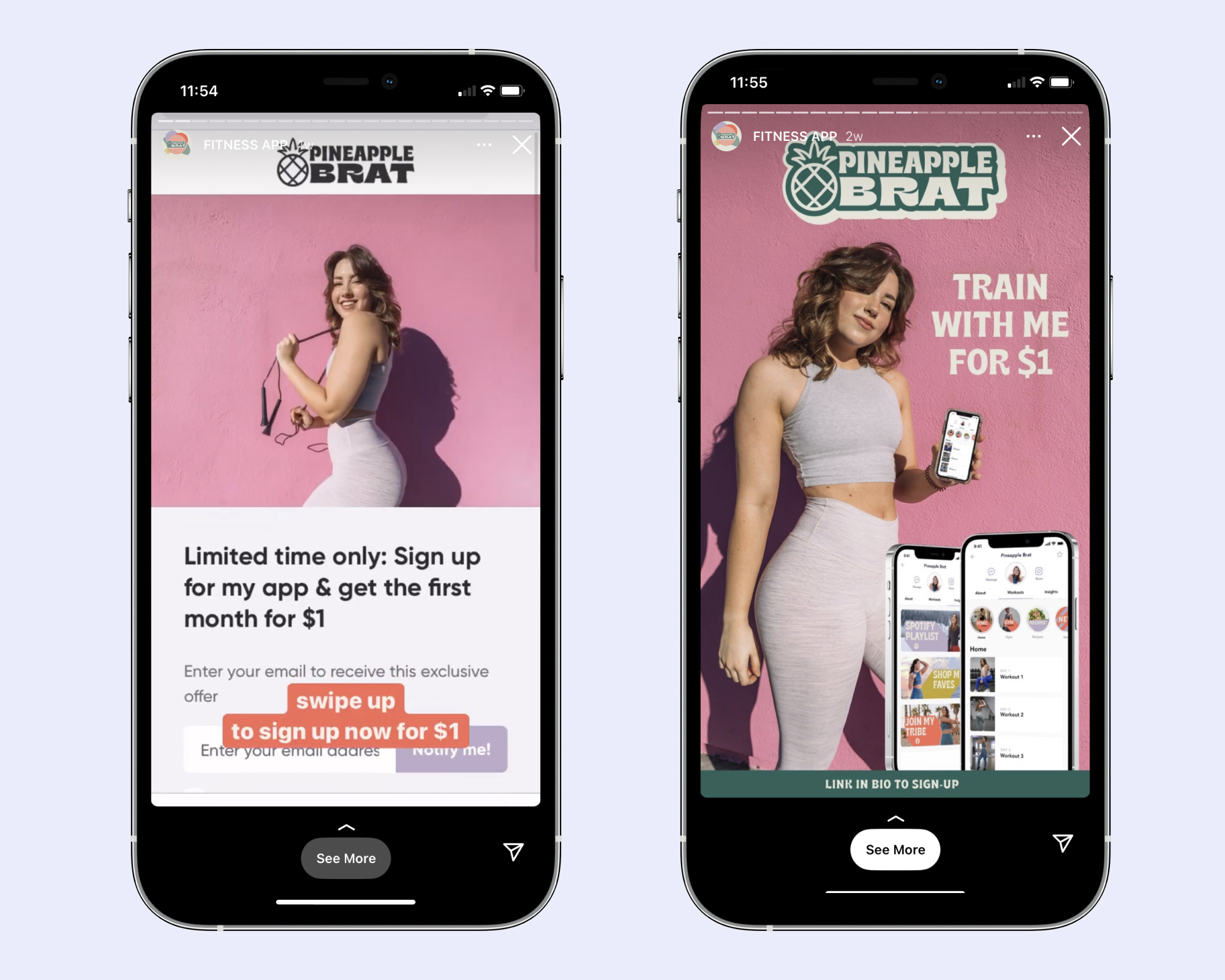
App Exclusives
Here are a few Instagram examples from Playbook creator Magnus Lygdback, who does a great job of sharing the exclusive content found in his app.
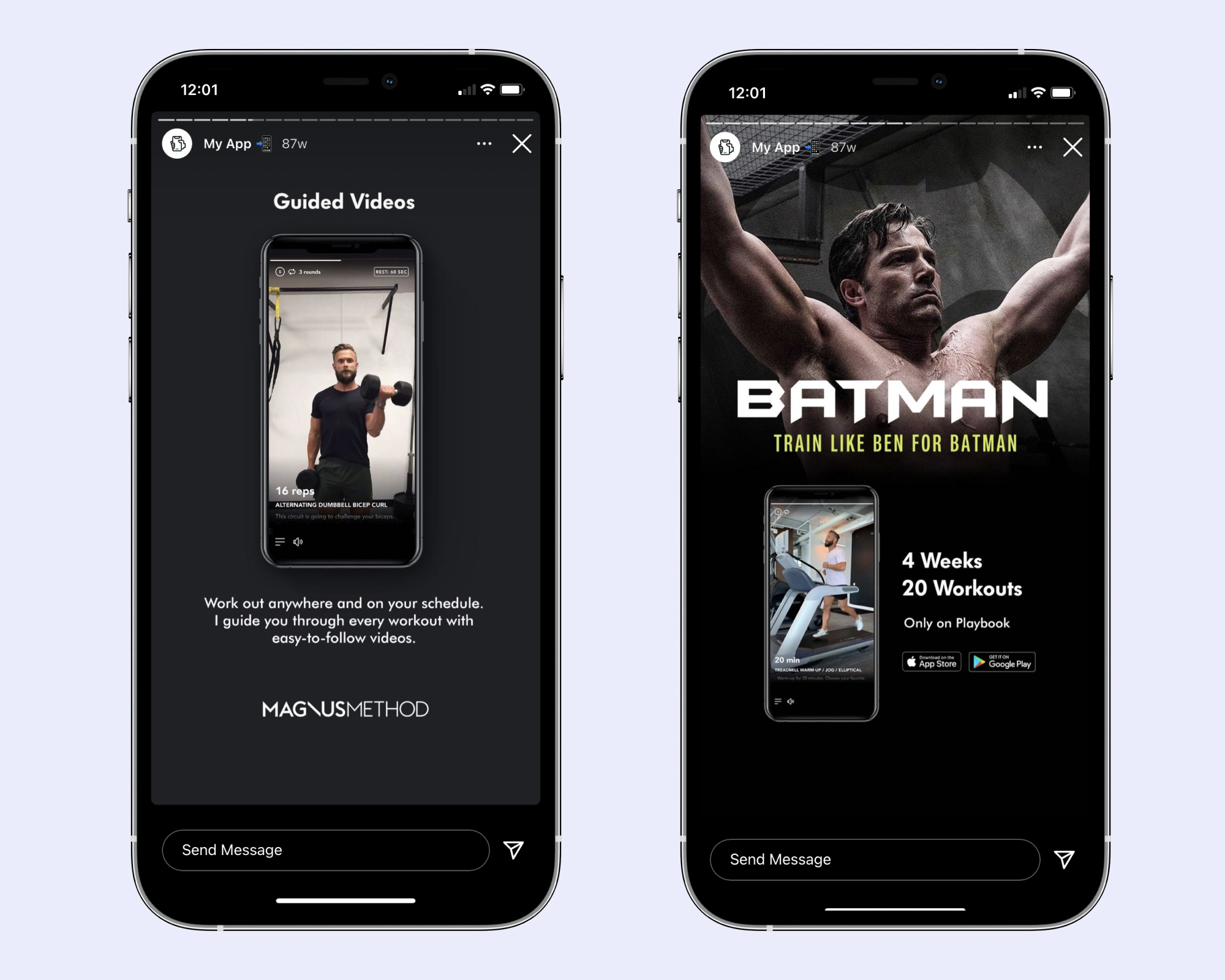
To really sell your value and price, we recommend creating an Instagram Story Highlight called “My App” where you can collect and share all posts related to your app. Use these Canva templates to create your own Instagram Story and Feed images.
Here’s an example:
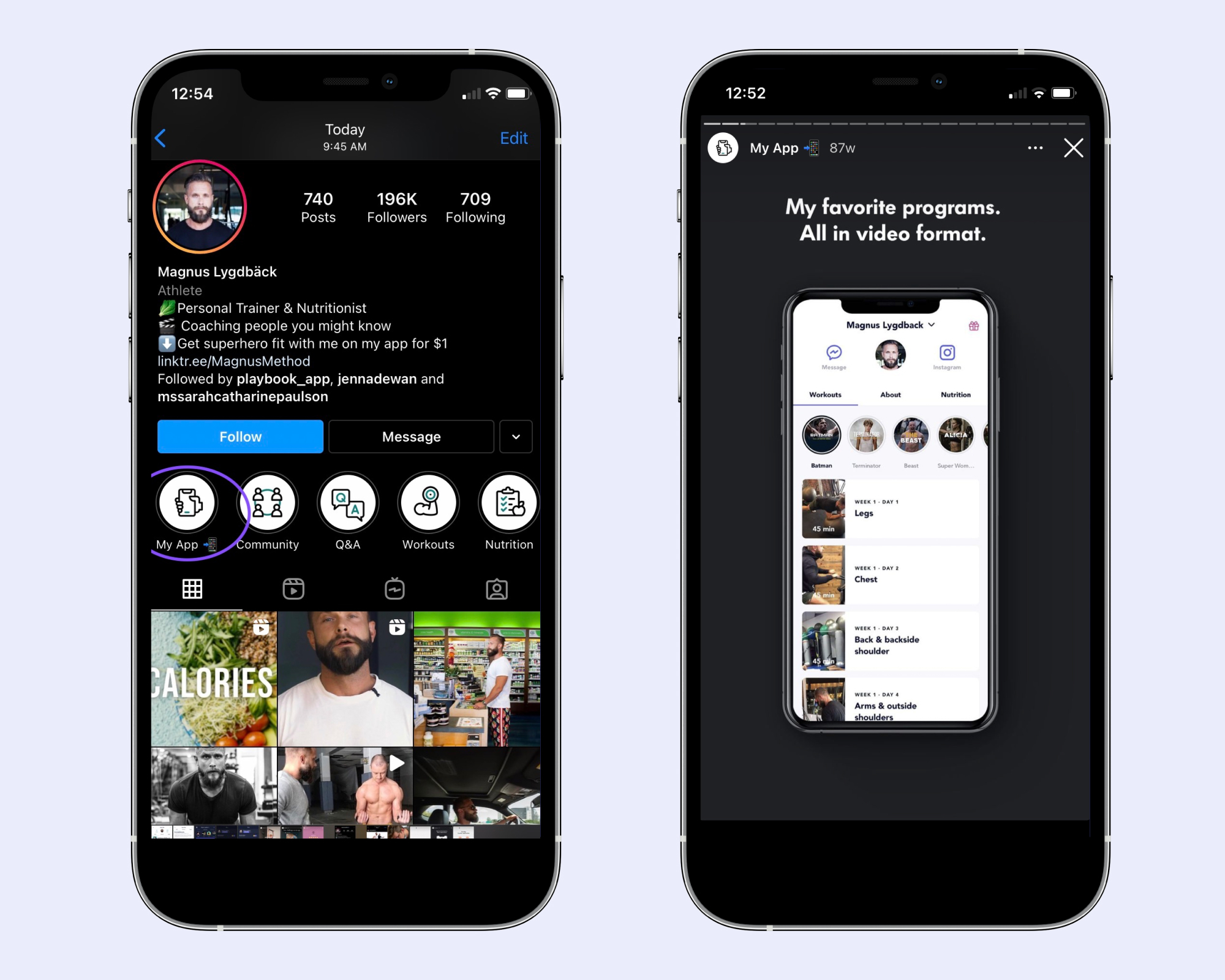
3. Sell With Community Using Social Proof
Work smarter, not harder! Let your fans and followers do the heavy lifting by marketing you to their communities. To leverage user-generated content and sell the success of your community:
Put up polls on Instagram Live asking users for feedback on what they want to see in your app
Do Q&As in Instagram Stories
Feature customer success stories — those fans will likely then reshare on their own profiles, exposing you to an entirely new pool of potential customers.
Ask followers to use a branded hashtag to tag you in their posts
Here’s an example Instagram Story post from Playbook creator Morgan Tyler with a branded hashtag. She used #NotFlexibleEnoughChallenge to encourage app users to submit their reviews and before/after photos as they completed a Challenge:

Use the power of social proof — share reviews and testimonials across your social platforms to turn potential customers into paying ones. Consumers are more likely to try a product when they see great reviews and happy customers.
Check out a few more Instagram examples from Pineapple Brat, who does an incredible job of promoting her app through community and social proof:
Reviews

Questions

Don’t forget about sharing user progress updates!
Here are a few examples of killer posts from Playbook creator Nick Bare:
Success Stories
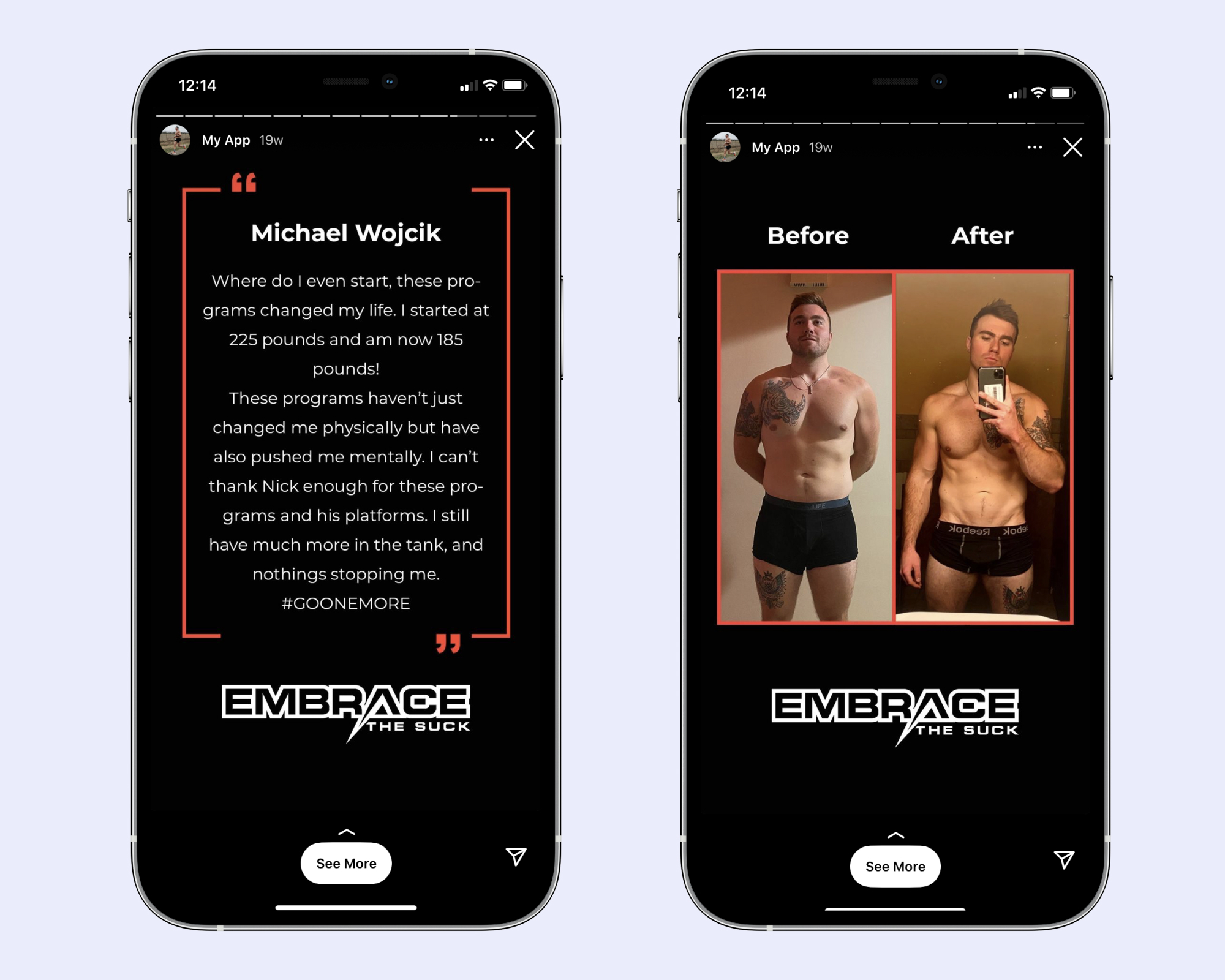
4. Don’t Stop Posting
Research shows it takes seeing a product eight to 12 times before a user makes a purchase decision. You should be peppering all of your activity online with CTAs to your app to get people to convert. Want to know the best time(s) to post? Check out suggestions here.
Keep the following in mind when it comes to your social posts, particularly on Instagram:
- The best creators have a regular posting schedule — develop a routine and stick with it.
We recommend posting about the app every day.
- Think about setting a theme for your posts.
Examples: Motivation Monday, Tip Tuesday, Workout Wednesday, etc.
- Be consistent with the caption format of your social posts.
Make sure your call to action is at the top.
Formatting should be easy to read.
Talk about your community.
Mention the value of your app.
Tell people the results they can expect from using your app.
Motivate them!
Here’s a great example of a social post following this format from Playbook creator Magnus Lygdback:
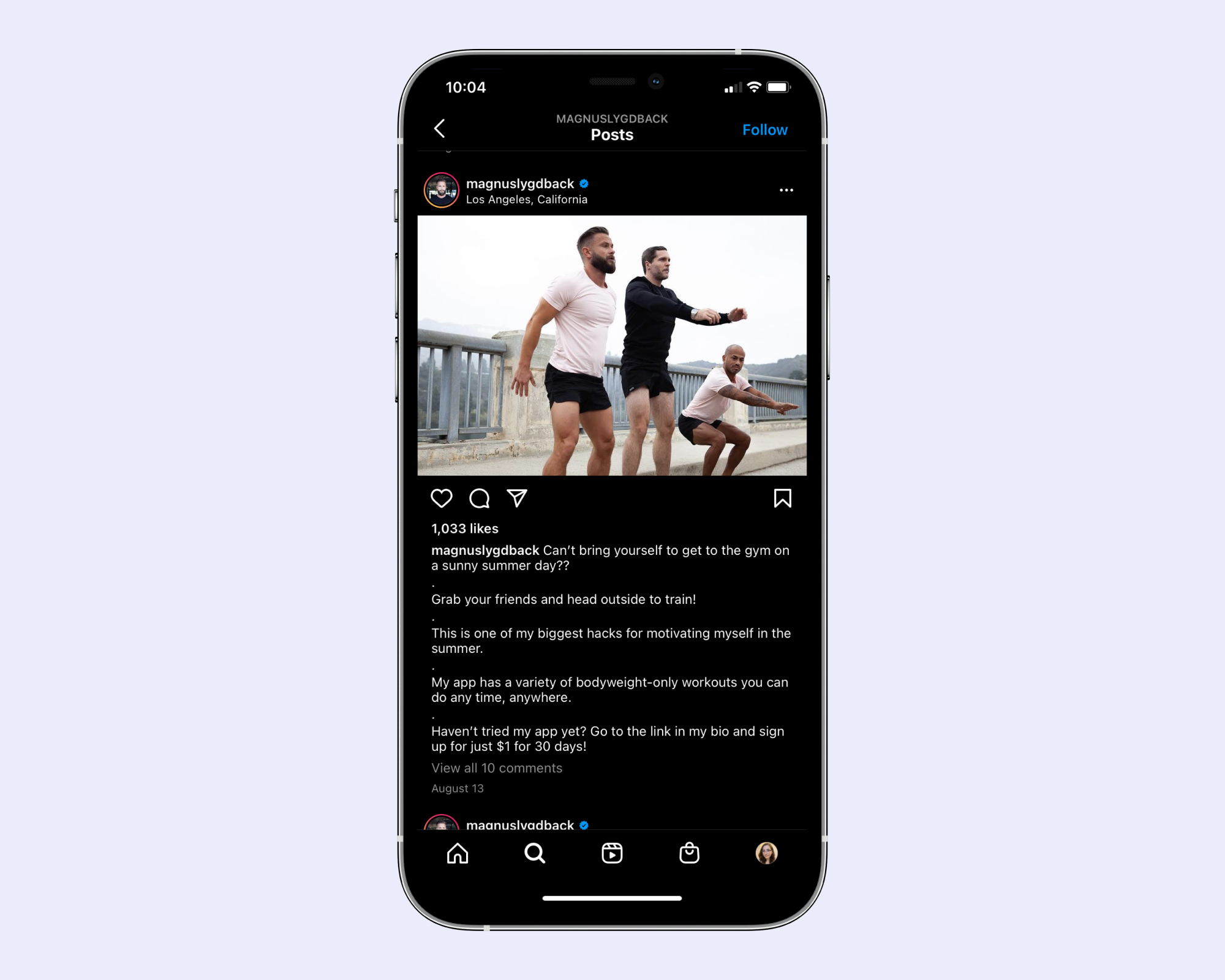
Playbook’s Creator Services
If you find yourself stuck when it comes to creatively marketing your app, we’re here to help!
We understand that marketing your business can be time consuming and you might not have enough hours in the day. That’s why we offer a number of Playbook Creator Services, including one-on-one business coaching.
The program is designed to help you become a successful fitness entrepreneur, and includes a kickoff consultation, custom business, marketing, and brand messaging plan, as well as biweekly check-in calls.